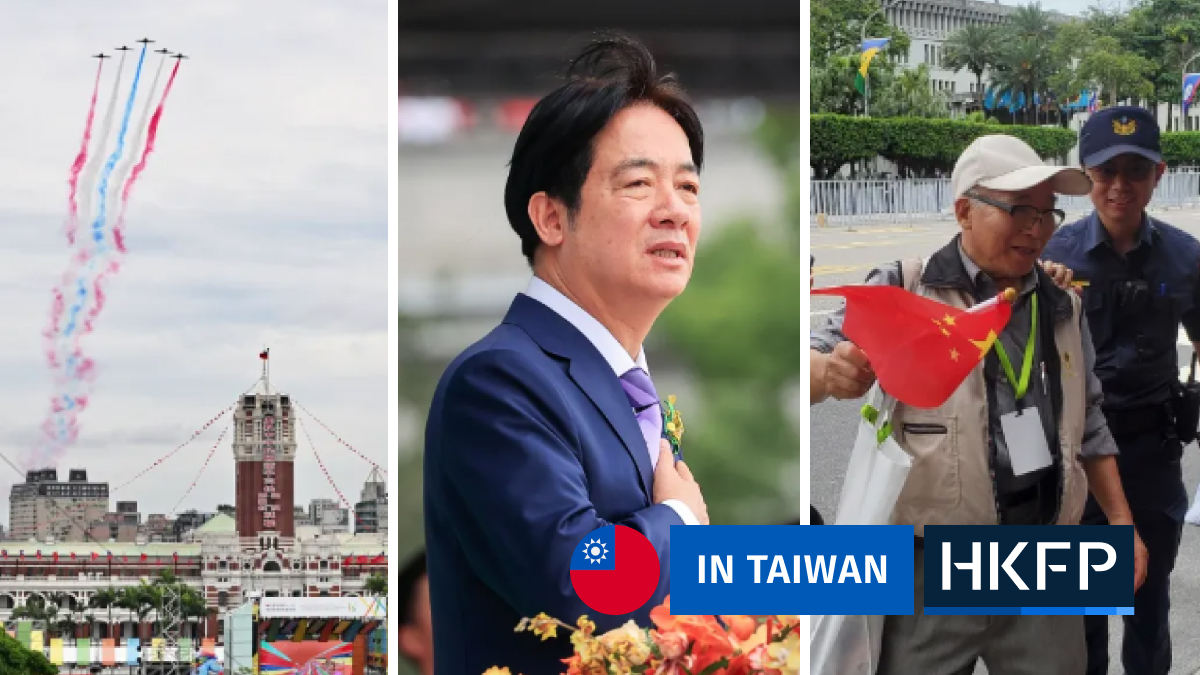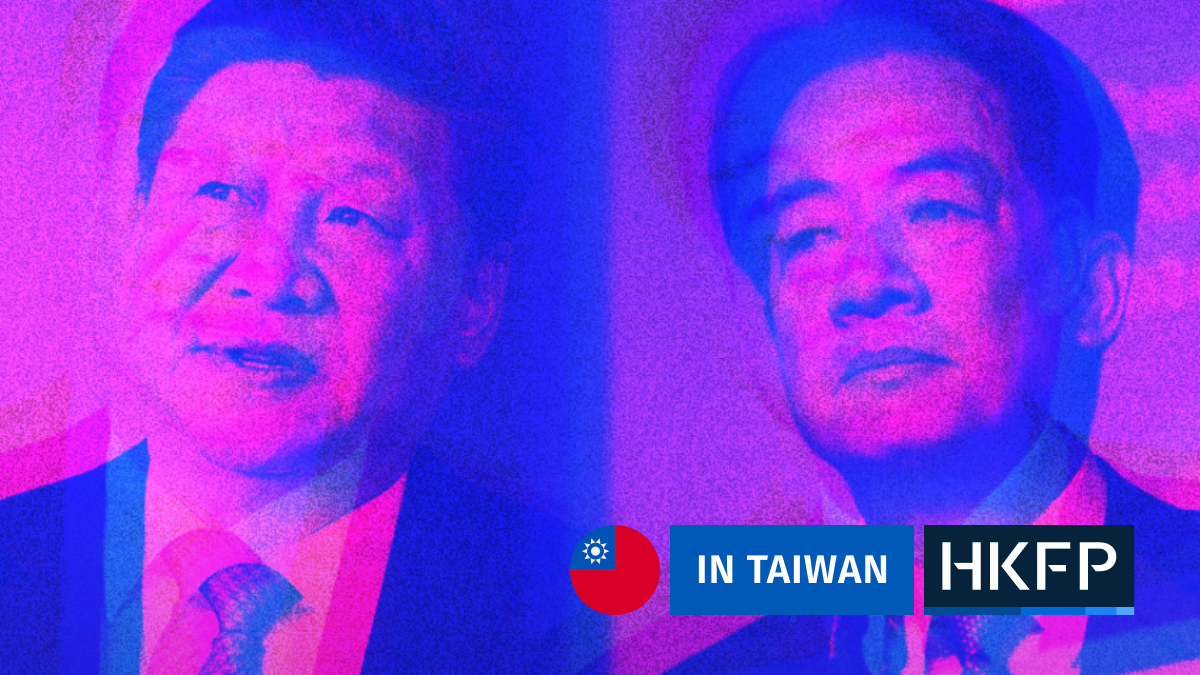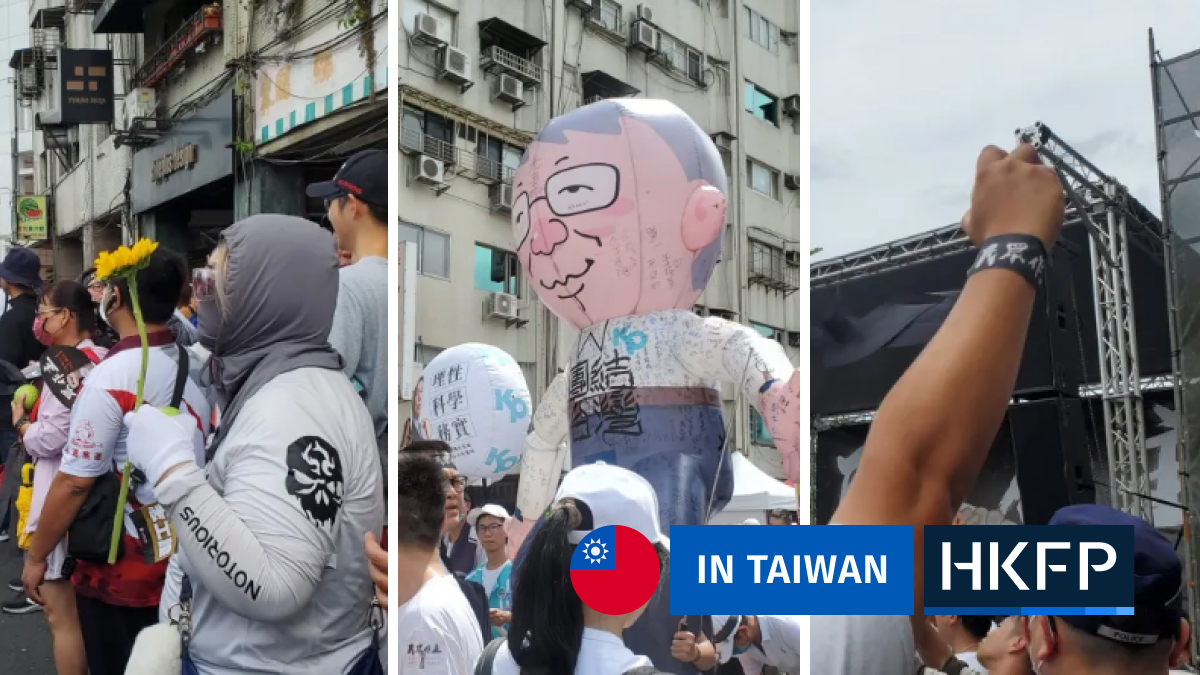Mary Kwan moved into Tai Hang Sai Estate soon after it was completed in 1965. Almost 60 years later, the 80 year-old is preparing to quit her eighth-floor flat for a transitional housing project in Tai Po.
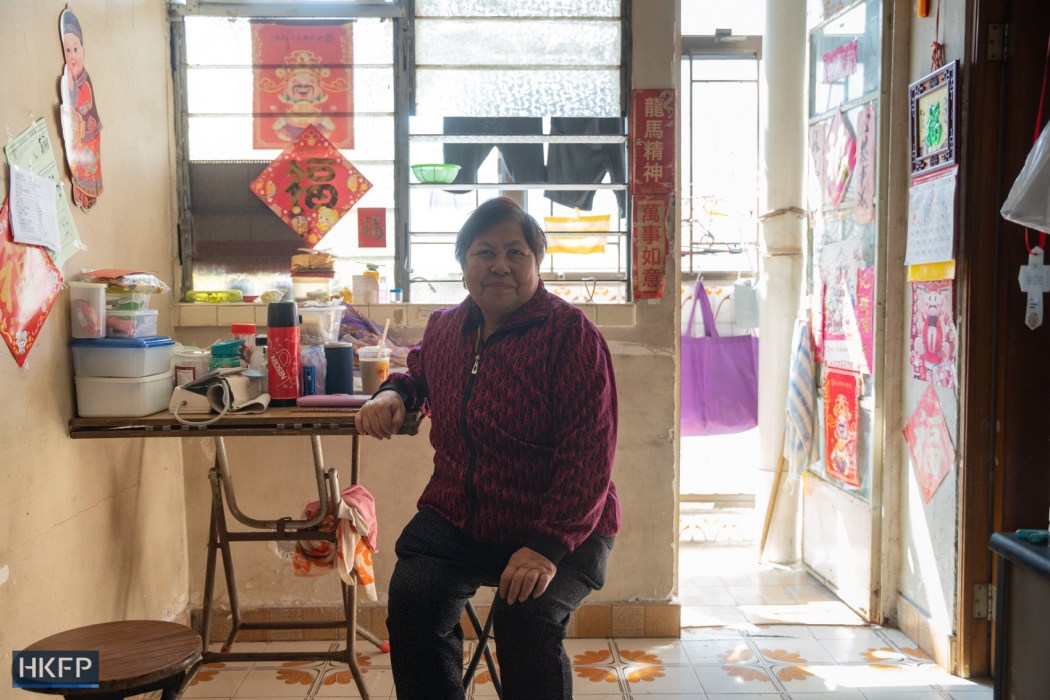
Tai Hang Sai Estate, Hong Kong’s only privately-owned low-rental housing estate, is set to be demolished and redeveloped, which is why Kwan – and many of her former neighbours – must vacate their homes. Because the deadline to move out was initially set for mid-March, Kwan has already packed most of her bags, which were stacked next to her sofa when HKFP spoke to her on Tuesday.
Built in 1965, with an eighth block added in 1977, the estate was initially meant to rehouse people affected by the clearance of the Tai Hang Sai Resettlement Area, offering over 1,600 units below market value.
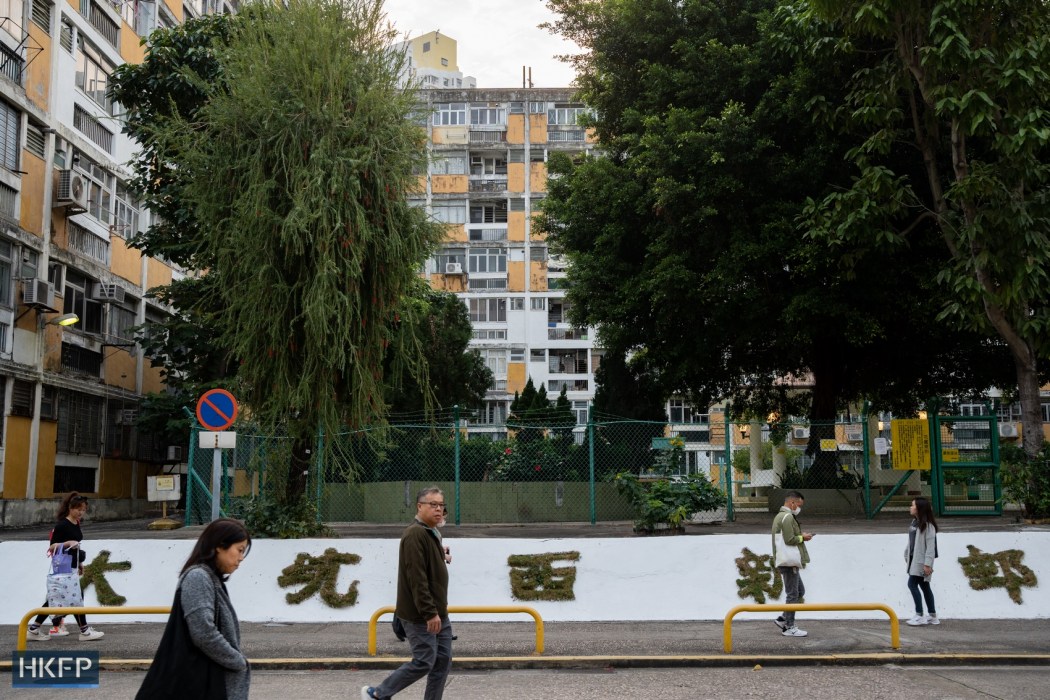
Kwan lived in her apartment with her husband, and the couple raised their three children there. But since her husband fell ill and moved out to live with their son five years ago, Kwan has been the sole occupant of the 320-square foot two-bedroom flat.
‘I don’t have much time’
Every morning, Kwan goes downstairs for a breakfast of soy milk and rice rolls, then hikes up sixteen flights of stairs back up to her flat.
“I’m happy that I get to move someplace new, but I’m also worried because it took so long to be allocated a new home,” Kwan said in Cantonese, surrounded by festive red decorations that have stayed up since the Lunar New Year.
Red, which is traditionally considered auspicious, is also the colour of the Chinese character for “tragic” written on banners at the entrance of Man Lok House, one of the eight blocks at Tai Hang Sai Estate.
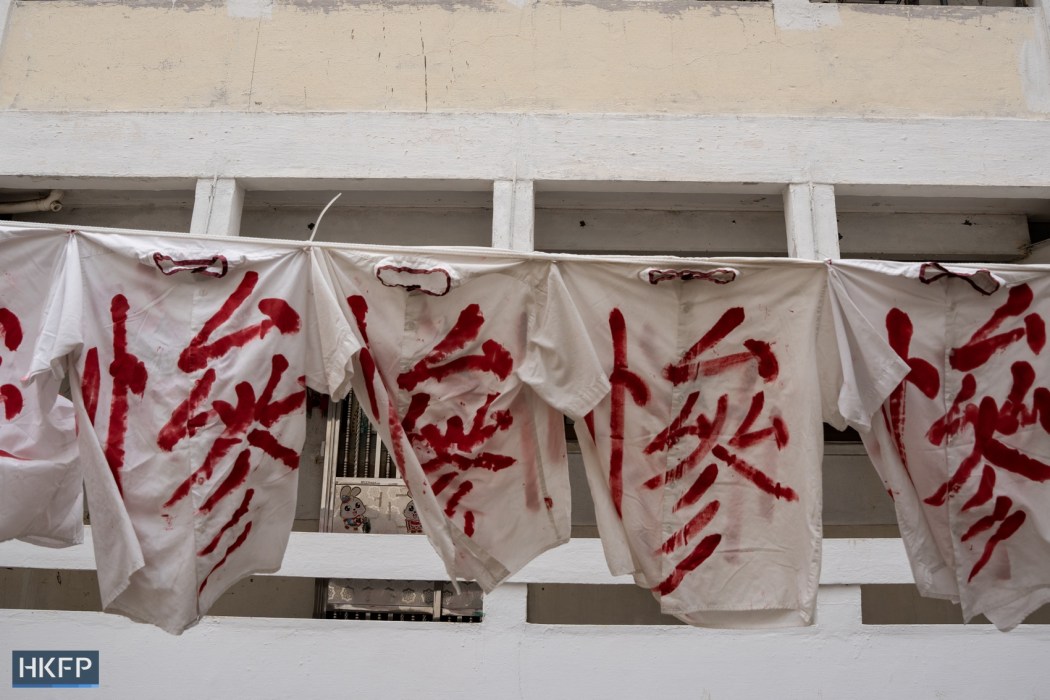
“The Hong Kong Settlers Housing Corporation (HKSHC) are liars,” one banner reads, referring to the estate’s owner. Since the corporation last June announced a plan to help residents relocate by providing rental subsidies, tenants have held protests calling for relocation in public rental housing.
Kate Auyeung, a member of the Resident’s Rights Concern Group, told HKFP last October that landlords would be hesitant to lease to elderly residents and called the corporation’s proposals “unfair and improper.”
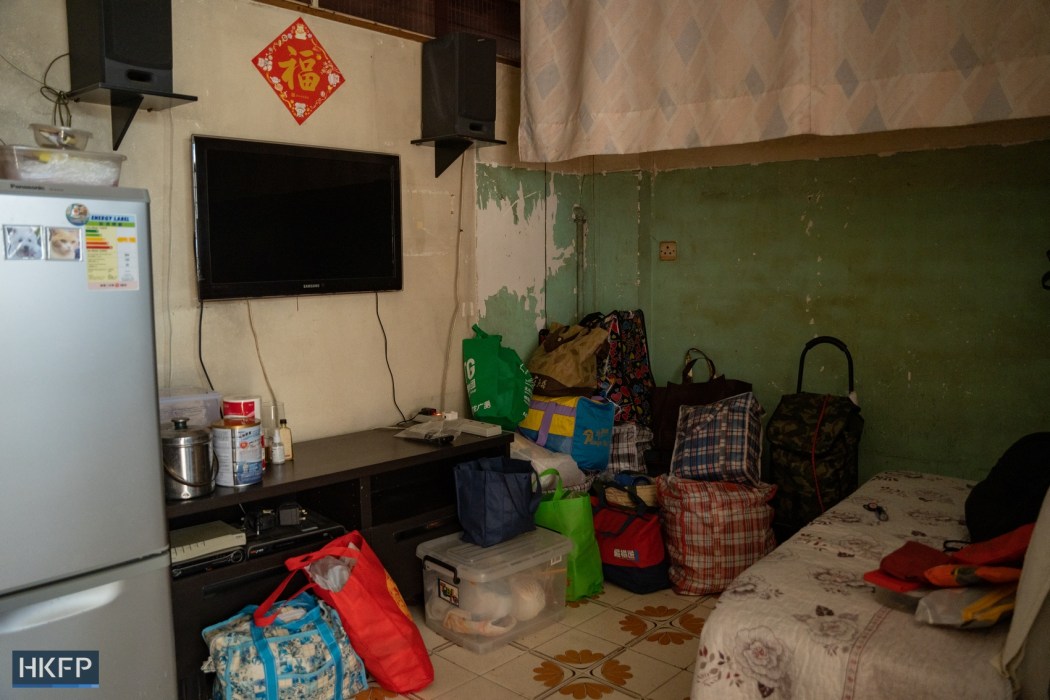
A single-person household will get around HK$9,000 in monthly rent subsidies over the course of the five-year redevelopment, while a family of four will receive HK$13,500 a month. But tenants have not been allocated public housing flats as many had hoped, with housing minister Winnie Ho last year saying that would be unfair to those on the waiting list for government-subsidised flats.
According to HKSHC, it will provide 1,300 flats for returning tenants and some 2,000 units for a “Starter Homes” pilot scheme when the redevelopment is completed in 2029.
“But I’m old now, I don’t have much time left,” Kwan said with a sigh.

Although lawmakers discussed the redevelopment more than a decade ago, it was not until last June that tenants were handed eviction notices.
Relocation woes
Even with the rent subsidies, finding new homes has proved a challenge for many of Tai Hang Sai Estate’s elderly residents. Just days ahead of the March 15 deadline for vacating the estate, Kwan was notified that she had more time to sort out her affairs. At the time, she was still waiting for her application for transitional housing to be processed.
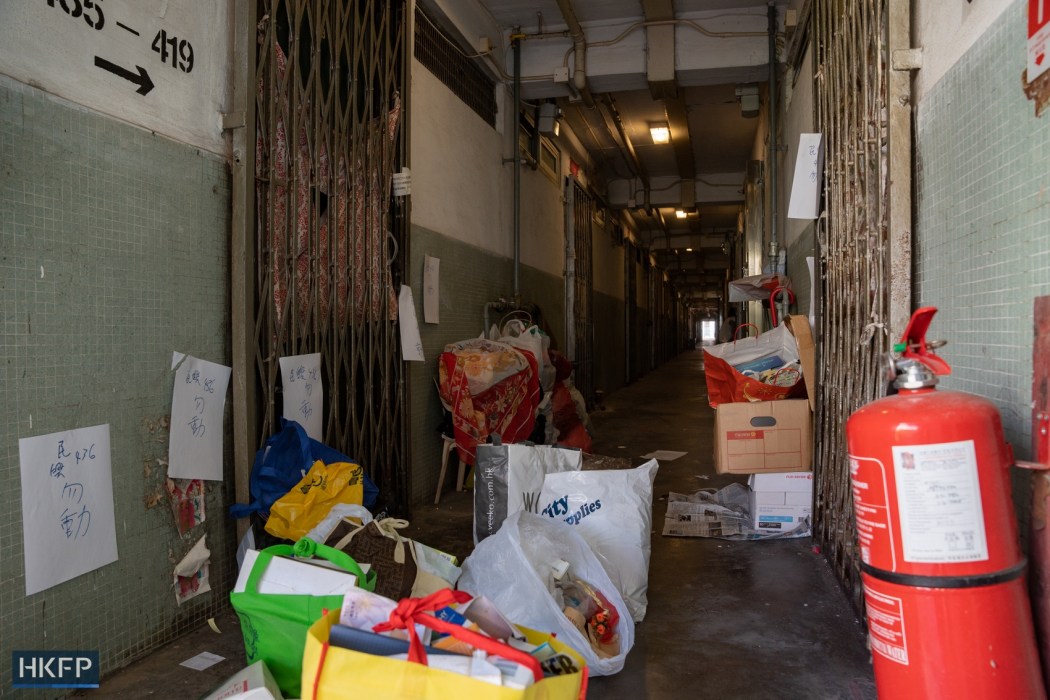
Run by non-governmental organisations and backed by the government, transitional housing provides short- to medium-term housing for those in urgent need of somewhere to live. Kwan’s application was rejected three times before she was allocated a flat at Lok Sin Village in Tai Po, costing about HK$2,200 per month in rent – a little more than triple what she has been paying at Tai Hang Sai Estate. Even so, she is glad to have found a new home.
“I feel a little bit better now,” she said.
In the course of her 56 years on the estate, Kwan has made lifelong friends. “[My neighbours] have all left their phone numbers for me, now I can call them at the push of a button!”
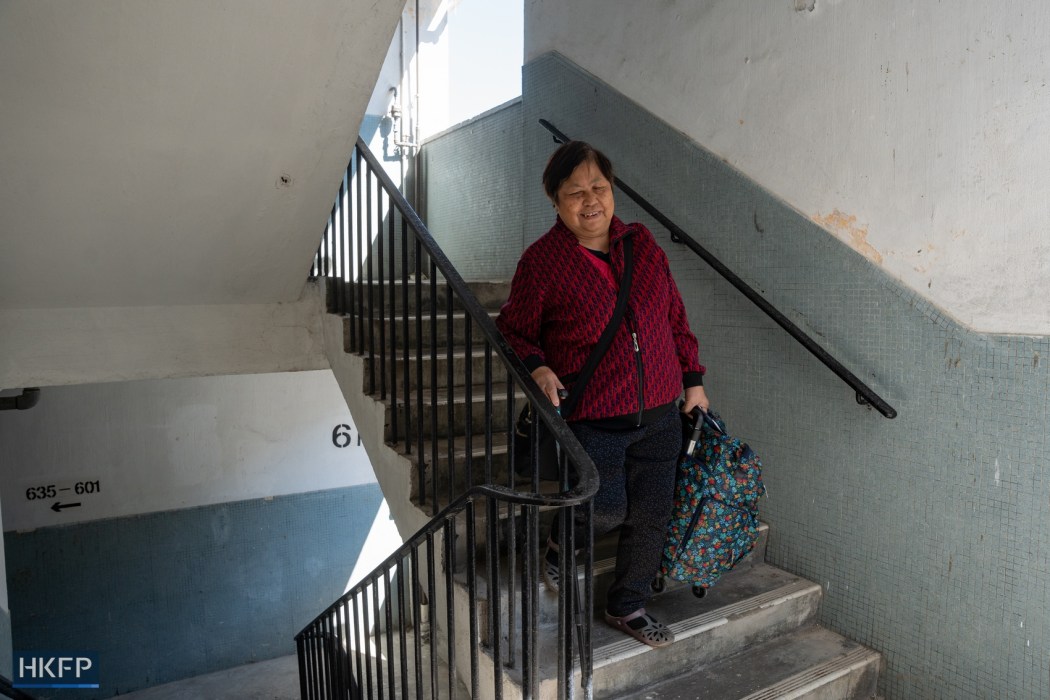
But getting used to her new home will take time.
Kwan’s transitional housing unit is surrounded by grassland and sandwiched between two luxury housing estates – a far cry from the old but relatively well-equipped Shek Kip Mei neighbourhood where Tai Hang Sai Estate is located.
“If my daughter lets me move in with her, I’ll do that,” she added with a chuckle. “I’m more familiar with the area in Tsuen Wan, so I can go listen to Cantonese opera!”
Kwan is one of 120-odd households allocated transitional housing that have yet to move out of the estate, according to a statement from the HKSHC last Tuesday. Another 60 households have not yet notified the corporation of readiness to hand over their flats, and legal proceedings have been initiated against about 20 who have refused to surrender them.
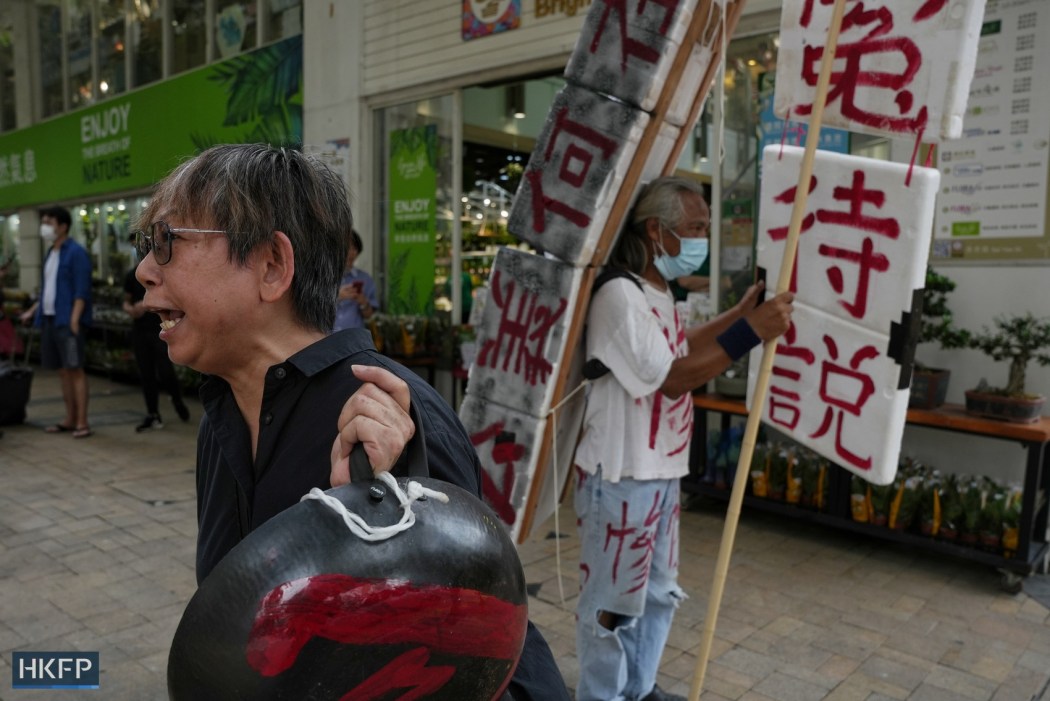
Around 10 residents have applied for legal aid to challenge the government’s redevelopment plan.
Downstairs, on a bench at the end of Man Tai House, former resident Au looked up at the ninth-floor flat he grew up in.
He moved out several months ago, after being notified of the relocation arrangement, to join his elderly mother in a public housing flat. In doing so, he forfeited his right to the rent subsidies offered by HKSHC. Au said he felt sympathy for his former neighbours who did not have that option.
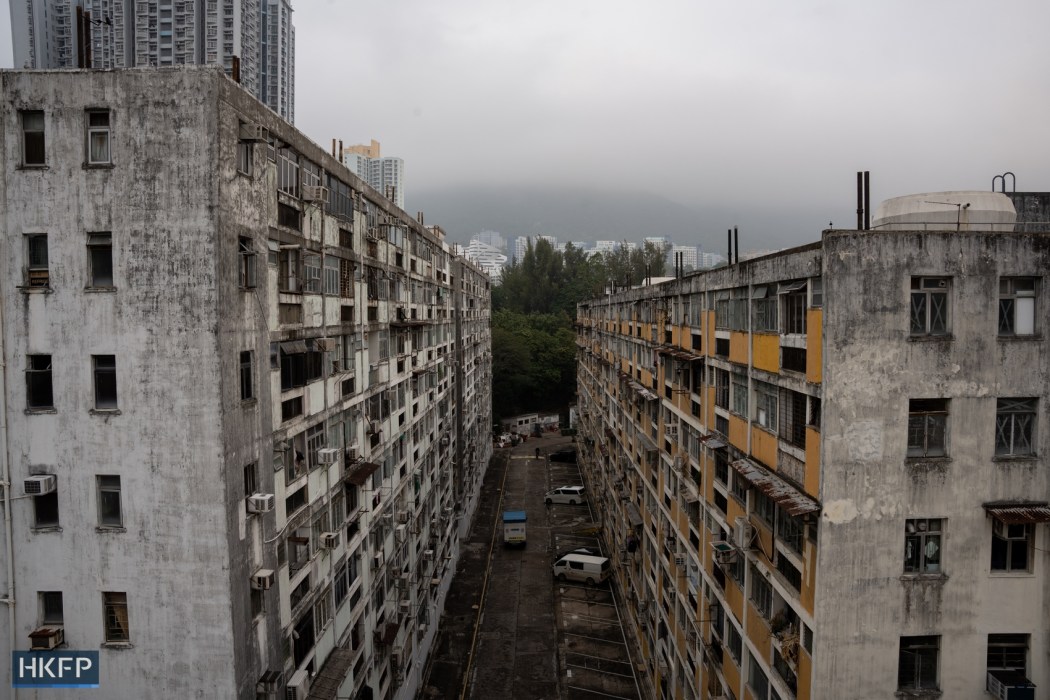
“Some of these residents are 80, 90 years old. What business do they have looking for new homes at their age?” he said, sitting next to his wheelchair-bound mother. “The government hasn’t intervened. Why won’t it help the elderly residents and let the younger ones take care of themselves?”
“In this day and age, residents are being dispossessed… It just doesn’t seem reasonable,” said Au’s sister.
Support HKFP | Policies & Ethics | Error/typo? | Contact Us | Newsletter | Transparency & Annual Report | Apps
Help safeguard press freedom & keep HKFP free for all readers by supporting our team

Original reporting on HKFP is backed by our monthly contributors.
Almost 1,000 monthly donors make HKFP possible. Each contributes an average of HK$200/month to support our award-winning original reporting, keeping the city’s only independent English-language outlet free-to-access for all. Three reasons to join us:
- 🔎 Transparent & efficient: As a non-profit, we are externally audited each year, publishing our income/outgoings annually, as the city’s most transparent news outlet.
- 🔒 Accurate & accountable: Our reporting is governed by a comprehensive Ethics Code. We are 100% independent, and not answerable to any tycoon, mainland owners or shareholders. Check out our latest Annual Report, and help support press freedom.
- 💰 It’s fast, secure & easy: We accept most payment methods – cancel anytime, and receive a free tote bag and pen if you contribute HK$150/month or more.
MORE Original Reporting
HKFP has an impartial stance, transparent funding, and balanced coverage guided by an Ethics Code and Corrections Policy.
Support press freedom & help us surpass 1,000 monthly Patrons: 100% independent, governed by an ethics code & not-for-profit.




